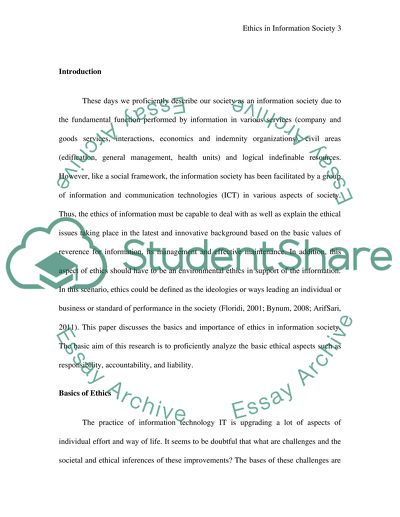Cite this document
(“Ethics in an informations society Essay Example | Topics and Well Written Essays - 2000 words”, n.d.)
Retrieved from https://studentshare.org/environmental-studies/1416913-ethics-in-an-informations-society
Retrieved from https://studentshare.org/environmental-studies/1416913-ethics-in-an-informations-society
(Ethics in an Informations Society Essay Example | Topics and Well Written Essays - 2000 Words)
https://studentshare.org/environmental-studies/1416913-ethics-in-an-informations-society.
https://studentshare.org/environmental-studies/1416913-ethics-in-an-informations-society.
“Ethics in an Informations Society Essay Example | Topics and Well Written Essays - 2000 Words”, n.d. https://studentshare.org/environmental-studies/1416913-ethics-in-an-informations-society.


